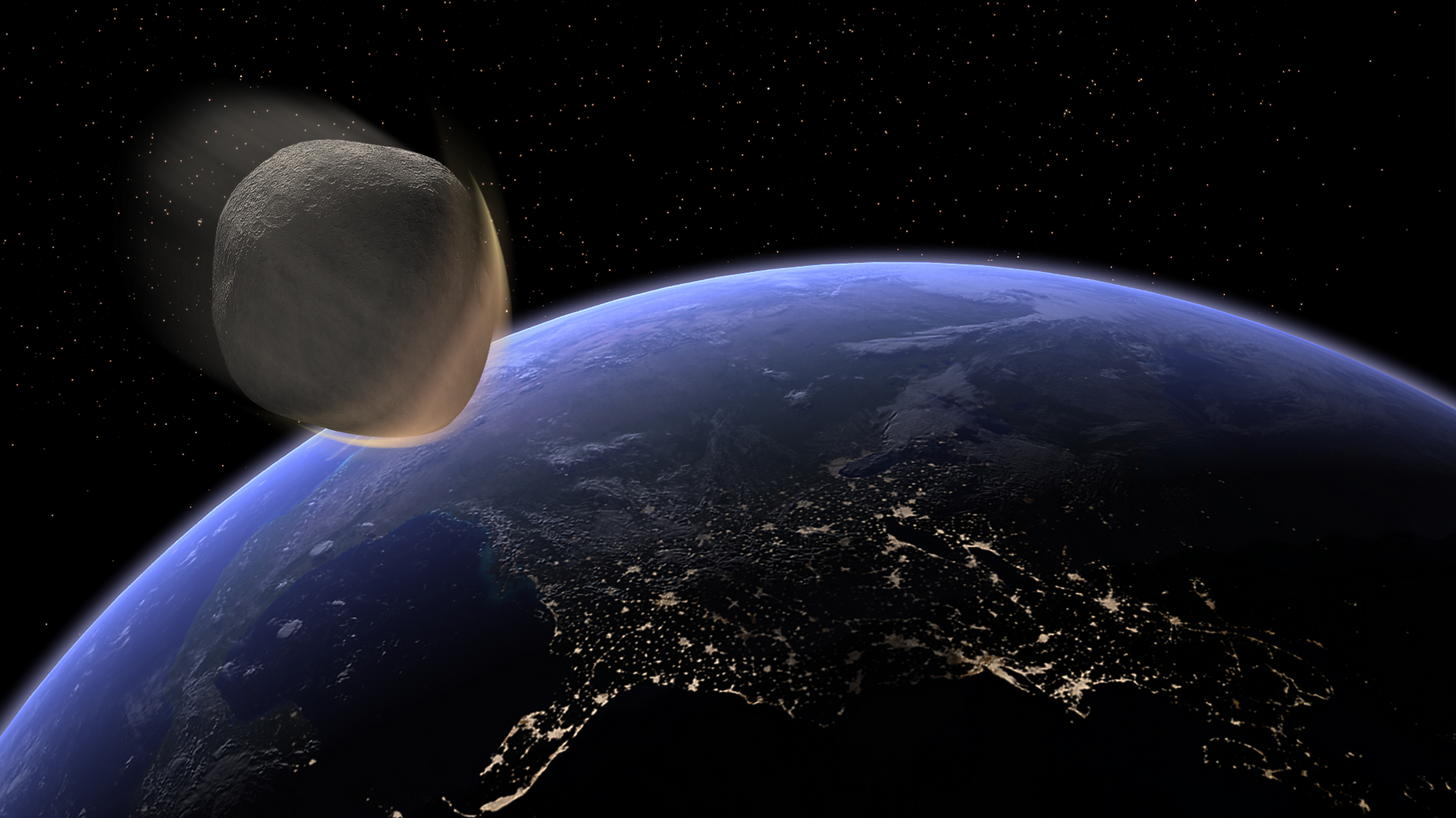https://sputnikglobe.com/20220314/refrigerator-size-asteroid-detected-less-than-two-hours-before-impacting-earths-atmosphere-1093840807.html
Refrigerator-Size Asteroid Detected Less Than Two Hours Before Impacting Earth's Atmosphere
Refrigerator-Size Asteroid Detected Less Than Two Hours Before Impacting Earth's Atmosphere
Sputnik International
Over the weekend, Hungarian astronomer Krisztián Sárneczky discovered 2022 EB5, an asteroid approximately the size of a refrigerator that slammed into the... 14.03.2022, Sputnik International
2022-03-14T00:34+0000
2022-03-14T00:34+0000
2023-04-12T16:57+0000
astronomy
asteroid
fireball
iceland
norway
space
https://cdn1.img.sputnikglobe.com/img/107903/04/1079030406_0:20:1917:1098_1920x0_80_0_0_d47917aecb9f82571e046371a906672e.png
The small asteroid—dubbed 2022 EB5—is projected to have caused a fireball, or shooting star, after entering Earth’s atmosphere just north of Iceland, around 21:22 UTC on March 11.Experts have estimated that the asteroid was traveling at a speed of approximately 11.5 miles per second (18.5 kilometers per second), which, at that size, would cause the asteroid to be vaporized during its passage into Earth’s atmosphere.Eyewitnesses near the northern Iceland town of Akureyri observed bright blue flashes in the sky, according to social media accounts cited by the International Meteor Organization (IMO).The small asteroid’s fiery trail was identified by astronomer Krisztián Sárneczky less than two hours before it impacted the atmosphere.Sárneczky’s discovery is the fifth asteroid to be detected just before it enters Earth's atmosphere. Prior discoveries, all of which have occurred in the past 15 years, include: 2008 TC3, 2014 AA, 2018 LA, and 2019 MO, which generated five kilotons of TNT-equivalent explosion off the coast of Puerto Rico on June 22, 2019. Those around Iceland and Norway have been asked to provide personal accounts of the 2022 EB5 event to the IMO.Norway-based sensors monitoring nuclear detonations picked up the asteroid’s impact on the atmosphere, determining that the event’s resulting air burst had an energy release comparable to approximately 2,000 tons of TNT, according to Peter Brown, an astronomer at Western University in Ontario, Canada.Let's stay in touch no matter what! Follow our Telegram channel to get all the latest news: https://t.me/sputniknewsus
https://sputnikglobe.com/20190626/kaboom-massive-asteroid-with-force-of-5-kiloton-bomb-lands-south-of-puerto-rico-video-1076061193.html
iceland
norway
Sputnik International
feedback@sputniknews.com
+74956456601
MIA „Rosiya Segodnya“
2022
News
en_EN
Sputnik International
feedback@sputniknews.com
+74956456601
MIA „Rosiya Segodnya“
Sputnik International
feedback@sputniknews.com
+74956456601
MIA „Rosiya Segodnya“
astronomy, asteroid, fireball, iceland, norway, space
astronomy, asteroid, fireball, iceland, norway, space
Refrigerator-Size Asteroid Detected Less Than Two Hours Before Impacting Earth's Atmosphere
00:34 GMT 14.03.2022 (Updated: 16:57 GMT 12.04.2023) Over the weekend, Hungarian astronomer Krisztián Sárneczky discovered 2022 EB5, an asteroid approximately the size of a refrigerator that slammed into the Earth’s atmosphere shortly after it was spotted by the Schmidt telescope at Hungary’s Piszkéstető Observatory.
The small asteroid—dubbed 2022 EB5—is projected to have caused a fireball, or shooting star, after entering Earth’s atmosphere just north of Iceland, around 21:22 UTC on March 11.
Experts have estimated that the asteroid was traveling at a speed of approximately 11.5 miles per second (18.5 kilometers per second), which, at that size, would cause the asteroid to be vaporized during its passage into Earth’s atmosphere.
Eyewitnesses near the northern Iceland town of Akureyri observed bright blue flashes in the sky,
according to social media accounts cited by the International Meteor Organization (IMO).
The small asteroid’s fiery trail was identified by astronomer Krisztián Sárneczky less than two hours before it impacted the atmosphere.
Sárneczky’s discovery is the fifth asteroid to be detected just before it enters Earth's atmosphere.
Prior discoveries, all of which have occurred in the past 15 years, include: 2008 TC3, 2014 AA, 2018 LA, and 2019 MO, which generated five kilotons of TNT-equivalent explosion off the coast of Puerto Rico on June 22, 2019.
Those around Iceland and Norway have been asked to
provide personal accounts of the 2022 EB5 event to the IMO.
Norway-based sensors monitoring nuclear detonations picked up the asteroid’s impact on the atmosphere, determining that the event’s resulting air burst had an energy release comparable to approximately 2,000 tons of TNT,
according to Peter Brown, an astronomer at Western University in Ontario, Canada.
Let's stay in touch no matter what! Follow our Telegram channel to get all the latest news: https://t.me/sputniknewsus 



